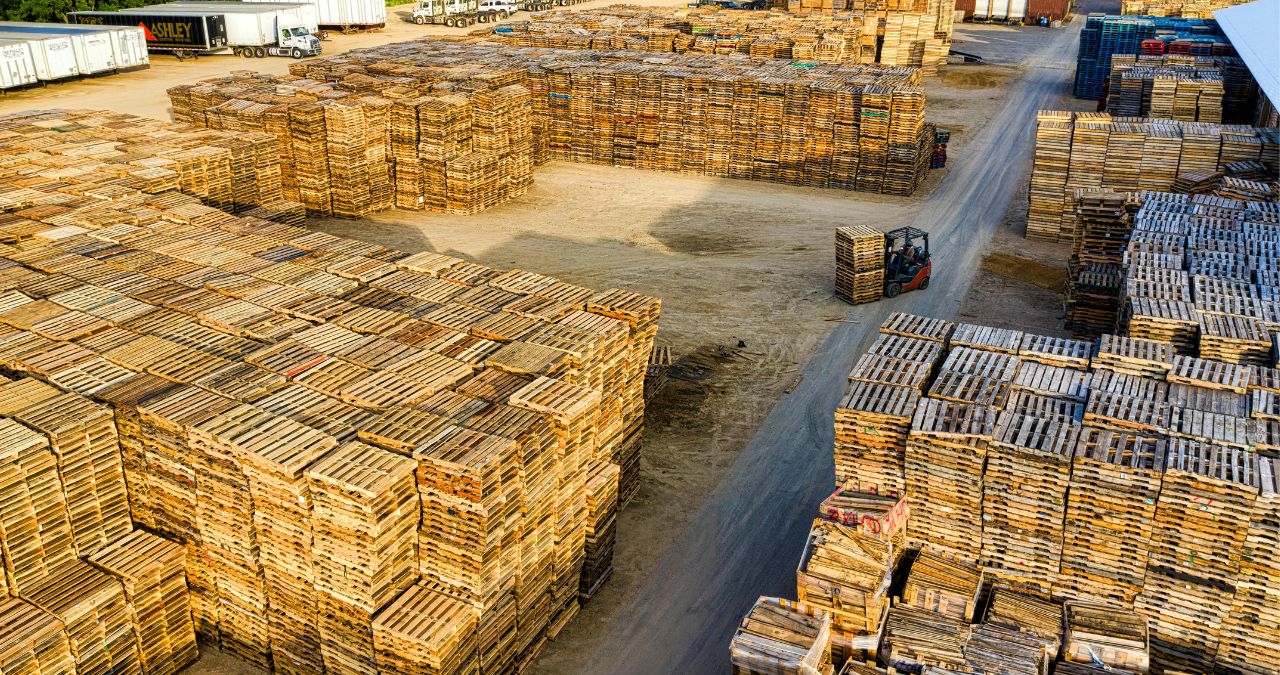With inflation rising, we’ve seen a surge in costs for the transportation sector. Operating costs, like energy and container prices, are rising rapidly with no signs of stopping. So, it’s more important than ever for logistics providers to optimize their operations to improve cost savings. Explore how optimizing pallet loads for refrigerated shipping leads to better operational efficiency and reduced costs for companies.
Optimizing Pallet Loads for Efficient Refrigerated Shipping
Factors For Selecting Pallets for Efficient Refrigerated Shipping
In the realm of logistics and refrigerated shipping, many factors influence the selection of the right pallets. The shipment weight affects fuel consumption in transport. Optimizing pallet sizing, pallet racking, and construction materials all play a part in reducing these expenses. In turn, this creates savings in operations costs for logistics companies.
The reliability and durability of shipping pallets are also critical concerns for operators. Choosing the correct type of pallet is essential. Reusable pallets might create a higher upfront expense for operators but lead to long-term cost savings for companies.
Temperature control, ventilation, and spill prevention are important factors when choosing pallets for shipping. In addition, efficient loading and unloading procedures and duration of the supply chain are important considerations. Companies need to factor this in when selecting the right pallets.
Companies should choose the most cost-effective refrigerated shipping option by considering both short-term and long-term benefits.
Pallet Options for Efficient Refrigerated Shipping
There are several material choices for pallet construction. Pallets are an affordable tool for improving logistics processes in short supply chains.
- Wooden pallets: are the most common choice for these tasks. These pallets are heavier, more robust, and suitable for one-way shipments. They’re easy to repair, but they have a limited service life.
- Plastic pallets: are a popular choice for reducing the overall weight of shipments. They also have a longer service life but have the downside of a higher upfront cost than their wooden counterparts.
- Corrugated pallets: this is a lightweight choice and suitable for short trips. They are also affordable but less durable than wooden or plastic counterparts. Steel pallets are the best choice for durability and service life, but they are heavier.
- Paper pallets: feature construction with recyclable materials, making them a sustainable, eco-friendly choice. However, they have lower load capacities than the other materials and offer less service life than wood, plastic, corrugated, and steel materials.
Optimizing Pallet Loads
There are several strategies logistics companies can take to optimize pallet loads. First, companies must calculate the cost savings of the materials mentioned above in their supply chain. Next, weigh the cost of acquiring the pallets in each material against the service life they offer.
Using lightweight materials like plastic reduces load weight, allowing for fuel savings. Optimizing pallet material choice for stacking can improve cost efficiencies in loading and unloading practices. Salvaging and recycling pallets also leads to cost savings, as does implementing digital tracking for inventory and route optimization.
Specialty Solutions for Optimal Refrigerated Transportation
Refrigerated transportation is a specialized logistics process requiring similar pallet solutions. Flexitanks used in bulk liquid shipments and nitrogen dosing for perishables are a few examples of specialized logistics processes for this industry.
Companies must evaluate the impact of these solutions on contamination risk, product loss, and energy consumption to ensure compliance with transportation and safety regulations in the refrigerated logistics industry.
Using lightweight materials might reduce fuel consumption and operational expenses but compromise pallet service life. Consolidation of shipments might improve production efficiency but needs careful consideration.
Shared container and pallet pools offer companies utilization benefits but require partnership agreements. Besides the cost savings, material choices and design innovations pave the way for sustainable pallet options.
Optimizing pallet loads can’t compromise the integrity and safety procedures in shipping. However, the innovative use of weight reduction, proper stacking, and efficient loading greatly improves the logistics process. Ultimately decreasing operating costs.
Pallets manufactured from sustainably sourced wood, recycled plastic materials, and reusable or reprocessed materials like bamboo offer cost savings. The use of biodegradable materials and incorporation of RFID tags for enhanced tracking promise long-term cost savings and futureproofing of the supply chain.
Key Takeaways on Pallet Loads
Optimizing pallet selection is a critical step in enhancing cost savings and improving efficiencies in refrigerated supply chains. They offer companies the chance to mitigate the impact of increasing transportation costs.
By evaluating pallet characteristics, emerging materials technologies, cost limitations, and sustainability goals, companies can create strategies to leverage innovative solutions. Therefore enhancing logistics coordination and asset utilization.
A proper pallet management system can help you maximize your supply chain efficiency, creating a resilient, cost-efficient, and seamless process as a whole moving into the future.
Cannonball Express Transportation
Cannonball Express Shipping Company has been providing top-of-the-line service at a reasonable rate. Based in Omaha, Nebraska, we provide nationwide refrigerated LTL services, as well as, local delivery services. Contact us today!
Nationwide Shipping Company Services:
- Refrigerated LTL deliveries in the lower 48 states
- Refrigerated Cross dock
Local Shipping Company Services:
-
- Redelivery Services
- Truckload & LTL Capabilities
- PUP
- Cross dock
- Transload
- Warehouse and Distribution capabilities from multiple Omaha Locations

